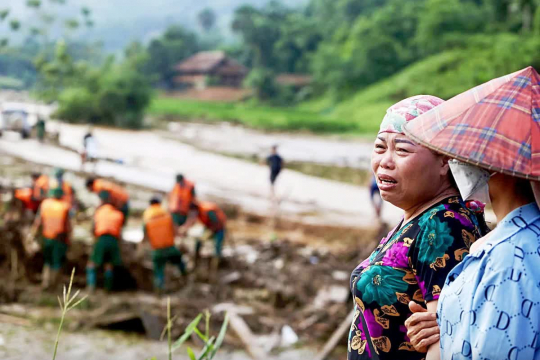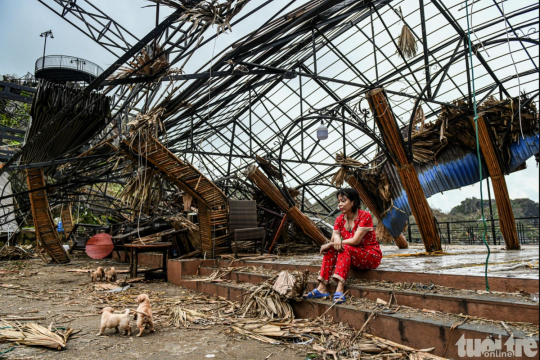Typhoon Yagi hit Vietnam in September 2024, becoming the most powerful storm to strike the country in 70 years. It caused widespread destruction in the northern regions, resulting in extensive humanitarian efforts and demonstrating the nation’s spirit of unity. This wave of generosity caught my attention particularly because it aligns with fascinating findings from a recent study by EfD researcher Ho Quoc Thong and his team, which looked at how awareness of donations influences people’s willingness to help during crises, particularly examining how this varies between men and women.
Information sparks generosity
The typhoon devastated the northern regions of Vietnam on September 7-8, leading to at least 334 deaths and widespread destruction across communities. The storm caused economic losses estimated at about 3.3 billion USD and affected more than 285,000 hectares of farmland. Around 282,000 homes and nearly 3,700 schools were extensively damaged, affecting the lives and education of countless families in the hardest-hit provinces. The environmental effects were also severe, with increased waste pollution, deforestation, damage to aquaculture, and poor water quality.
In response to the disaster, an impressive total of around 85 million USD was donated to the Central Relief Fund by October 2024 to support recovery efforts. This fund was used to rebuild homes, provide essential supplies, and assist families who lost loved ones or their means of livelihood. The transparency of these donations helped build public trust, confirming findings from recent research that show how sharing information about donations can inspire solidarity and foster community support in crises.
Gender and generosity: Insights from a recent study
While many people are discussing the typhoon impacts and the donation, I find it fascinating to connect these events to lessons about generosity which can be traced back to a recent study of data collected in 2022 after the COVID-19 pandemic. In their research, Ho Quoc Thong and his colleagues investigate the relationship between gender and solidarity behavior in crises examining whether the availability of contribution information can increase prosocial actions. They found that women tend to be more generous, especially when they see that others are donating as well. However, they also noted a gap: while learning about others’ contributions can encourage a sense of solidarity, it doesn't always lead to increased donations from everyone.
From my perspective, that study’s focus on solidarity during the COVID-19 pandemic provides valuable lessons for responding to future natural disasters. Recognizing the role of women in encouraging generosity during crises could strengthen community support and promote a culture of giving, as demonstrated in the aftermath of Typhoon Yagi.
Policy implications and future support strategies
Watching Vietnam's response to Yagi has reinforced my belief in the power of community resilience. However, the findings from the study suggest that there are further opportunities for policymakers to promote this sense of unity by acknowledging and highlighting the contributions of different groups, especially women. Making donation information easily accessible and recognizing women’s efforts can strengthen public trust and inspire collective action.
Vietnam’s strong response to Typhoon Yagi serves as a powerful reminder of the importance of community support. By applying research on what inspires generosity, like that of Ho Quoc Thong and his team, I believe policymakers can create effective strategies to rally support during emergencies, enhancing resilience and unity in communities.

